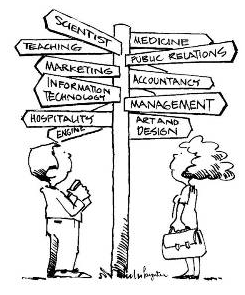Someone once said, "Coaching is like having a personal trainer for your life."
Often in life, we need assistance with some of the more personal aspects of life.
For example, clients consult with me on any range of private issues such as:
- how can I communicate more effectively and better than I do?
- how can I gain in more confidence?
- how can I be more assertive and say what's on my mind?
- how can I take more risks and step out more?
- how can I be more organised?
- how can I be more disciplined?
- how can I stop procrastinating?
The issues are many and varied, but my clients know where they currently are (and don't want to be) and instead, want assistance to move towards a better place.
Coaching Defined
Coaching is quickly becoming one of the leading tools and strategies that successful people are using in order to enhance their lives further and allow them to lead extraordinary lives. According to IBISWorld in 2017 in an article headed, "Life Coaches: Market Research Report", life coaching (as distinct from executive or leadership coaching), is growing at nearly 5% per year.

Finally, let's understand the differences...a ONE sentence Vignette...
- Mentor: Show you the way
- Therapist: Follow the trail of tears
- Consultant: Follow the expert advice
- Trainer: Follow the instruction
- Coach: Follow the trail of dreams
| PROCESS | MENTORING | CONSULTING | THERAPY | COACHING |
|---|---|---|---|---|
| Thought | My experience is... I know how... | I'm an expert. This is what you are paying me to tell you. | I will help you heal from the cause. | How can I support your learning? Where would you like to go from here? |
| Statement | "This is how I would do it." | "This is how to do it." "This is how you should do it." | "Tell me about your past?" "What was it you went through?" | "What have you tried?" "How has that server or dis-served you?" "What else is possible?" |
| Action | Guidance and advice. | Direction, method, technique & information. | Probe, psycho-analyse, deep reflection, come to terms with it. | Explore, experiment, learn new ways of working, thinking, doing, personally & professionally. |
Why is Coaching Necessary?
- Because the world is changing and fast. Businesses must keep reinventing themselves if they are to survive and people must keep reinventing themselves and updating their skills in all areas of their lives if they are to be employed by these businesses. In fact, the Financial Times in 2013 reported in an article titled, "We want coaching, say his-fliers", more companies now actively encourage, and fund, their rising stars to have regular time with a professional coach.
- Because coaching can help resolve a problem within a relatively short time period.
- Because coaching has the potential to address a number of human resources issues such as:
(i) decreased satisfaction or motivation with work,
(ii) strong desire to advance within the organisation, but without the ability or direction to do so,
(iii) need to pass expertise from valued senior workers to new workers,
(iv) to retain workers and provide more commitment. - Because coaching has the means to allow individuals to reach their goals and their dreams in a way that they could not do alone themselves.
Where has Coaching Come From?
During the 1960's, the business world started to look at sports coaching and adapt the techniques for use in training and development. These techniques have been developed and enhanced and today coaching is one of the fastest-growing personal development strategies used by CEO's, senior managers, entrepreneurs, professionals and people generally wanting to improve their situation.
It's a Partnership
The coaching relationship is a partnership - an equal relationship allowing the client room to move yet being accountable so that he / she can be the kind of person that they would like to be, to achieve the kind of life that they would like to have, and to achieve the goals that they would like to gain.
The Core of Coaching
- At the core of coaching is the principle of goal setting which is a basic paradigm that is fundamental to both individual and organisational change. We need to know where we are going and what we are aiming for otherwise we probably won't get there.
- Coaching also uses a solutions-focused approach to dealing with problems.

Coaching is solution-oriented not problem-focused
A solution focused approach says that when faced with an issue, it is important to:
- clarify the goals
- decide what you want to change
- see the problem as something you have (not are)
- focus on times when you have coped or been successful
- chart your progress towards the solution
- clarify the central goal or issue
- look at your strengths and talents
What is the Role of the Coach?
"The Guide on the side, not the Sage on the stage"
It is a kind of journey through the woods, but the coach is not like a tour leader who has necessarily been there before and knows the track well. Instead, it is more akin to a fellow traveller who has never been in those woods, but who is skilled in dealing with the undergrowth and dealing with the elements and finding a way through -- sometimes the coach walks in front, sometimes behind and sometimes alongside, but always there.
What is the Coach's Responsibility?
It is the coach's responsibility to:
- Discover, clarify, and align with what clients / employees want to achieve,
- Encourage client / employee self-discovery,
- Elicit client / employee generated solutions and strategies,
- Hold the client / employee accountable.
How is Coaching Different from Therapy or Counselling?
Coaching is not counselling or therapy, but it does use techniques derived from clinical psychology. The main differences are:
- Coaching deals with clients who are basically functional, albeit dissatisfied with some aspect of their lives. So people may come to coaching for a variety of reasons, but not necessarily because they have a problem. It may be simply that, like an athlete, they want to improve their performance in a particular area of their life.
- The emphasis in coaching is less on unravelling the problem and dealing with the past as it is focusing on the present and examining solutions - it is very future-oriented.
- Coaching does not deal with clinical issues such as depression or high levels of anxiety; for those, you need to see a clinical psychologist or psychiatrist.
What are the Pre-requisites for Coaching Success?
Coaching works well when two prime factors are present:
- the client is motivated to learn, grow and take action.
- there is a gap where he or she is now and where he or she wants to be.
These are the critical ingredients for a successful coaching relationship where with support, you can develop the right strategy, implement a plan of action and achieve your goals.
What are the Benefits of Coaching?
Training VS Coaching
"Thirty-one managers underwent a conventional managerial training program which was followed by eight weeks of one-on-one executive coaching. Training increased productivity by 22.4%. The coaching which included: goal setting, collaborative problem solving, practice, feedback, supervisory involvement, evaluation of end-results, and a public presentation, increased productivity by 88.0%, a significantly greater gain compared to training alone".
(Source: Olivero, G et al., "Executive Training as Transfer of Training Tool: Effects on Productivity in a Public Agency", Public Personnel Management, 26 (4), 1997, p461-469.)
A Survey of 4000 Corporations
"A survey of more than 4000 corporations revealed that corporate coaching improves the performance of individuals, leads to better client service, raises confidence, improves relationships that work, develops people for the next level and increases goal achievement. These benefits lead to increased profits and competitiveness for the company and better employee retention".
(Source: "Coaching can be a good thing for organisations and employees alike" Training and Development, February 2000.)
Management Coaching in USA
A survey in the USA found that 90% of American workers who have had on-the-job coaching or mentoring believe it was an effective development tool, yet only 38% of the workforce has ever had a coach or mentor.
The "most useful" factors that managers received in their coaching were the following:
- Clear, constructive feedback
- Supportive trusting relationship
- Information on developing specific skills
- Information on organisational strategy
- Specific actionable advice
(Source: Peterson, D et al., Management Coaching at Work: Current Practice in Multinational and Fortune 250 Companies, Personnel Decisions International, 1997)
The Leadership Employment And Direction 2001 Survey (LEAD Survey)
Conducted by Leadership Management Australia (LMA), the LEAD survey is one of the most significant surveys conducted into workplace issues in Australian business. It researched 2,300 business leaders, senior managers, and employees during 2001. Specifically this included: 300 business leaders, 495 senior managers, and 1560 employees.
Some of the Key Findings:
"One of the major trends to emerge this year is the positive role that mentoring/coaching can play in business. Proactive policies and practices that encourage the development of formal and informal mentoring / coaching models will address a number of the concerns we have seen emerge this year. In particular, coaching will help keep older workers engaged, ensure skills are transferred and assist career advancement while strengthening the understanding and respect across all levels within organisations" (Grant Sexton, Managing Director, LEAD Survey).
In relation to Career Development:
Among Senior Managers;
- 55% had experienced mentoring / coaching in a career development
- 97% found coaching beneficial
Among Employees;
- 33% had a mentor / coach in their current work role
- 91% of those who had received mentoring / coaching found it beneficial
- 61% of those without a mentor / coach would find having such a coach beneficial
In relation to Executive Coaching:
Among Business Leaders;
- 19% have an executive coach
- 95% of those with a coach find having such a coach beneficial
- 56% of those without coach would find having such a coach beneficial
Among Senior Managers
- 10% have an executive coach
- 88% of those with a coach find having such a coach beneficial
- 59% of those without a coach would find having such a coach beneficial
Finally, most Business Leaders and Senior management surveyed believed that work pressures for employees will increase in the future.
The key therefore, is to better utilise the available resources in an organisation and become more clever in the harnessing of people's talents. In this context, coaching can play a much more prominent part in the development of staff and is essential in the developing and retaining the right people.

